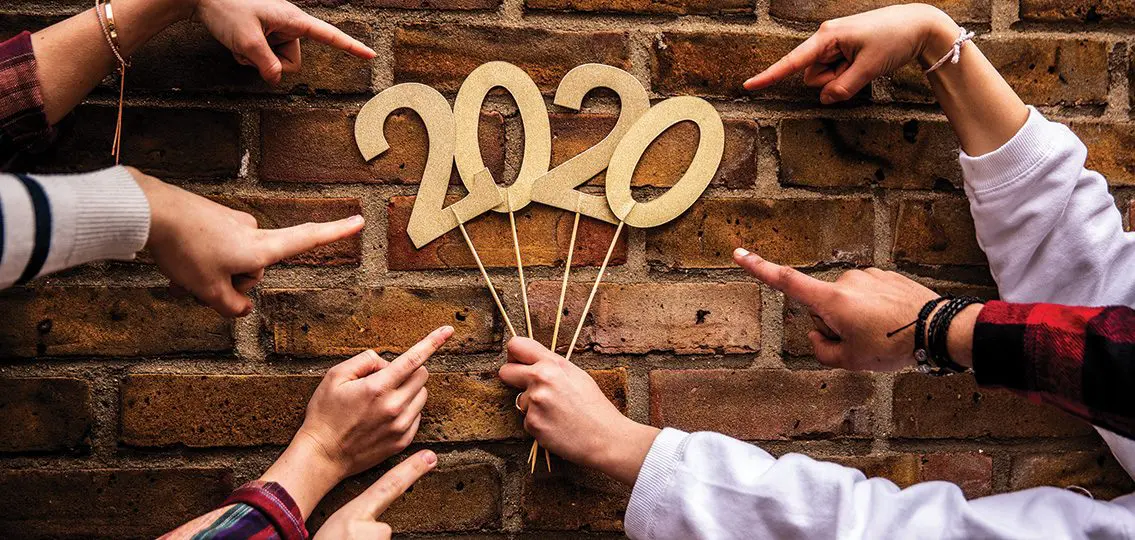March 6, 2020. My son flies cross-country and arrives home for spring break, six months into his freshman year of college. I squeal as we embrace, and then I notice he has only brought with him a small carry-on duffel bag.
“Where’s all of your stuff?” I ask.

“I travel light, Mom! It’s just a week,” he says. “Plus, I still have some of my old high school clothes here in case I need backup.”
That same afternoon I get a call from my oldest son, a college senior, who attends school nearby. His dorms have been shut down, and he is heading home as well.
I begin to fantasize about the evening ahead, when all of my birds are in the nest, under my roof.
I plan a large meal, pull out the Scrabble board, and prepare for an evening of togetherness.
That night, when I look around the dinner table, I start to tear up. Moments like these are harder to come by now that my oldest two are in college. To have them home, along with their two younger teenage siblings—what could be better?
But as the week progresses, and the news of COVID-19’s emergence and initial spread in our country begins to increase, our household receives big news for all of our kids. Campuses are closed for the rest of the school year. And, well, you know the rest. The one-week gleeful spring break turns into seven months of extreme, non-stop togetherness and tumultuous world news about the continuing pandemic.
My kids are 22, 19, 16, and 14. They eat a lot, they exercise a lot, and boy are they loud! The basement becomes a makeshift gym and our master bedroom turns into a home office for my husband. But I am surprised at how well everyone takes the news, especially my college freshman who has just begun to hit his stride. He remains cool as a cucumber. I am floored.
Fast forward through months of global uncertainty and lives lost, exhausted frontline workers, crowded hospitals, and mixed protocol messages from leaders. And within our own family cocoon we know that we are much luckier than so many others, but we still have individual and collective “losses” nonetheless—of missed milestone birthday celebrations, a canceled college graduation ceremony, and extended family illnesses.
The COVID news continues to be up and down.
We feel worried about the uncertainties and sadness in our world but try to hold it together for our kids and not appear too panicked. But, as it turns out, they are not little kids anymore. They read and watch the news and seem to get what is really going on here. Dinner conversations are not just about daily plans and ways to fill time, as we continue to discuss and debate the news and life outside of our bubble. This pandemic is uprooting not just our lives but the world as we know it.
My college freshman becomes the glue of our family when sibling and parental conflict arise. He’s a calm presence and helpful resolver when there is discord. He has also stepped up to be the one who makes sure the house is stocked with continuous groceries and notices when we get low on milk or other essentials. He is a willing and positive contributor to household chores and tasks. I am enjoying noticing the problem-solving, contributing young adult he is becoming after just six months of college away from home.
Eventually August presents some good news. College will resume in a hybrid format. Dorms will be open. He packs up the same small duffel bag from spring break—his dorm items have long since been boxed up and stored by his college—and heads back to school.
COVID test: check!
COVID travel forms completed: check!
Flight to college: check!
But then his college drops another bomb: Dorms are now shut down and all classes are virtual. Please do not return to campus.
With this news—and when I would be seriously freaking out if I were in his shoes—he assesses, analyzes his options, and pivots.
After some sleepless nights on our end, my husband and I receive a call from him with his plan. “I want to take a leave of absence from school,” he tells us. “I already spoke to my sports team and can extend my eligibility an extra year. My summer internship is willing to keep me on working for them through this school year, and I found a room I can sublet in a house with college friends. I think it is my best option. I don’t want to spend a whole year of college online.”
His voice sounds positive and even hopeful. “So, what do you think?”
We listen, ask him a few questions, and ultimately we support him. His thoughtful decision process, along with his grit and resilience, make us proud.

Three months later, his voice is cheerful when he calls us. He explains to us that he is genuinely happy. “I think I have made the two best decisions I have made in my life: to live with some college friends this year, and to work instead of going to school,” he says. “I really have no regrets. I feel lucky.”
It was music to our ears.




